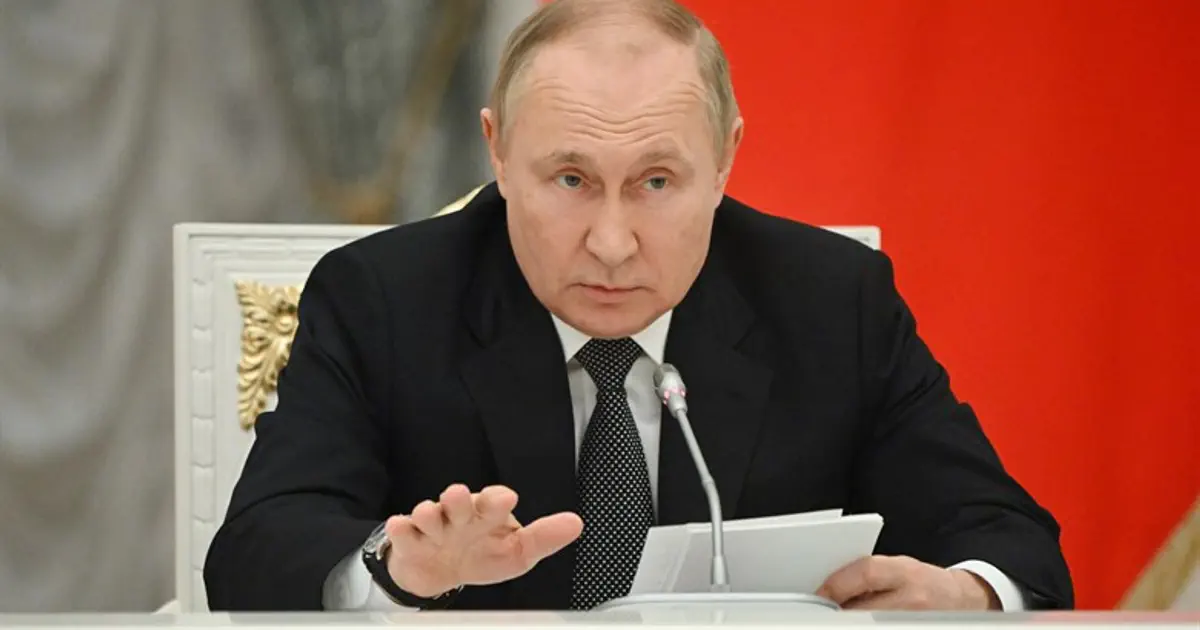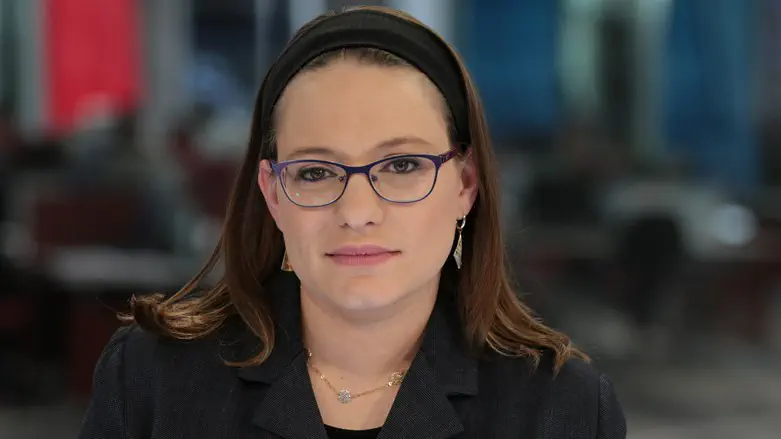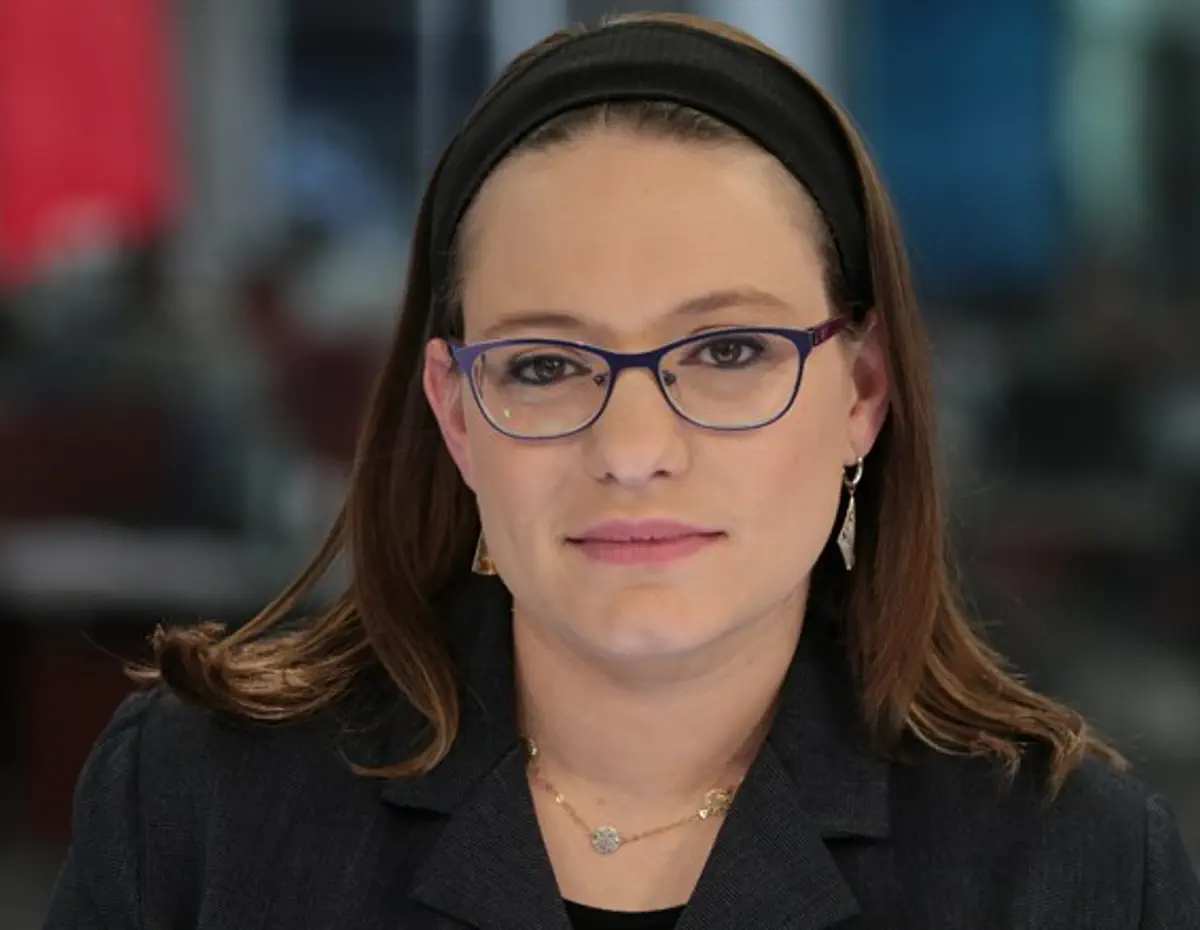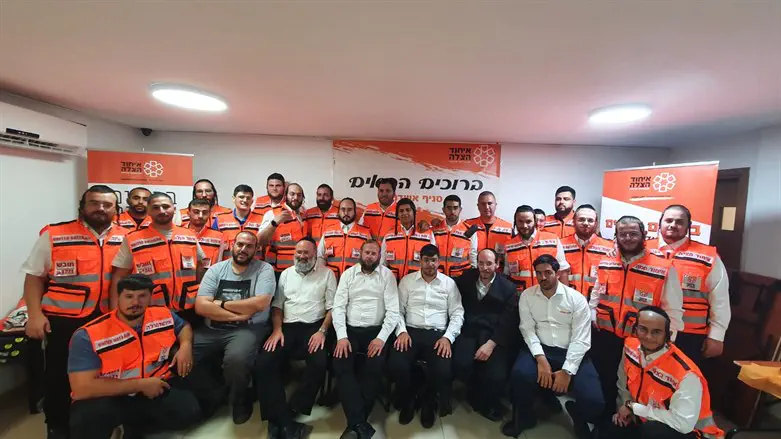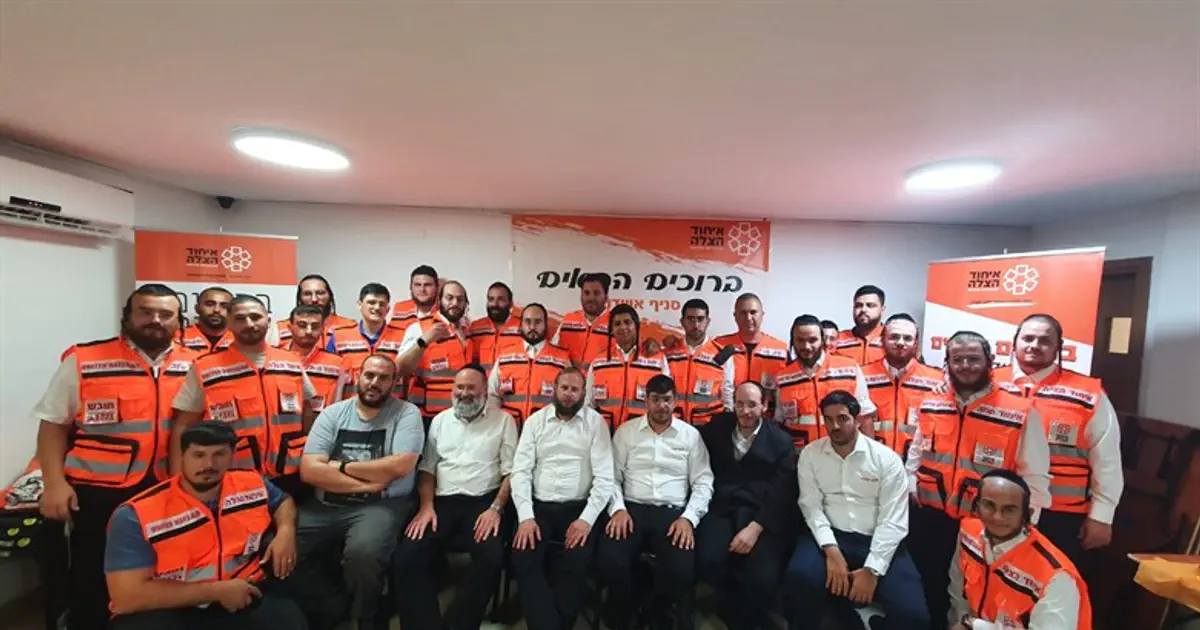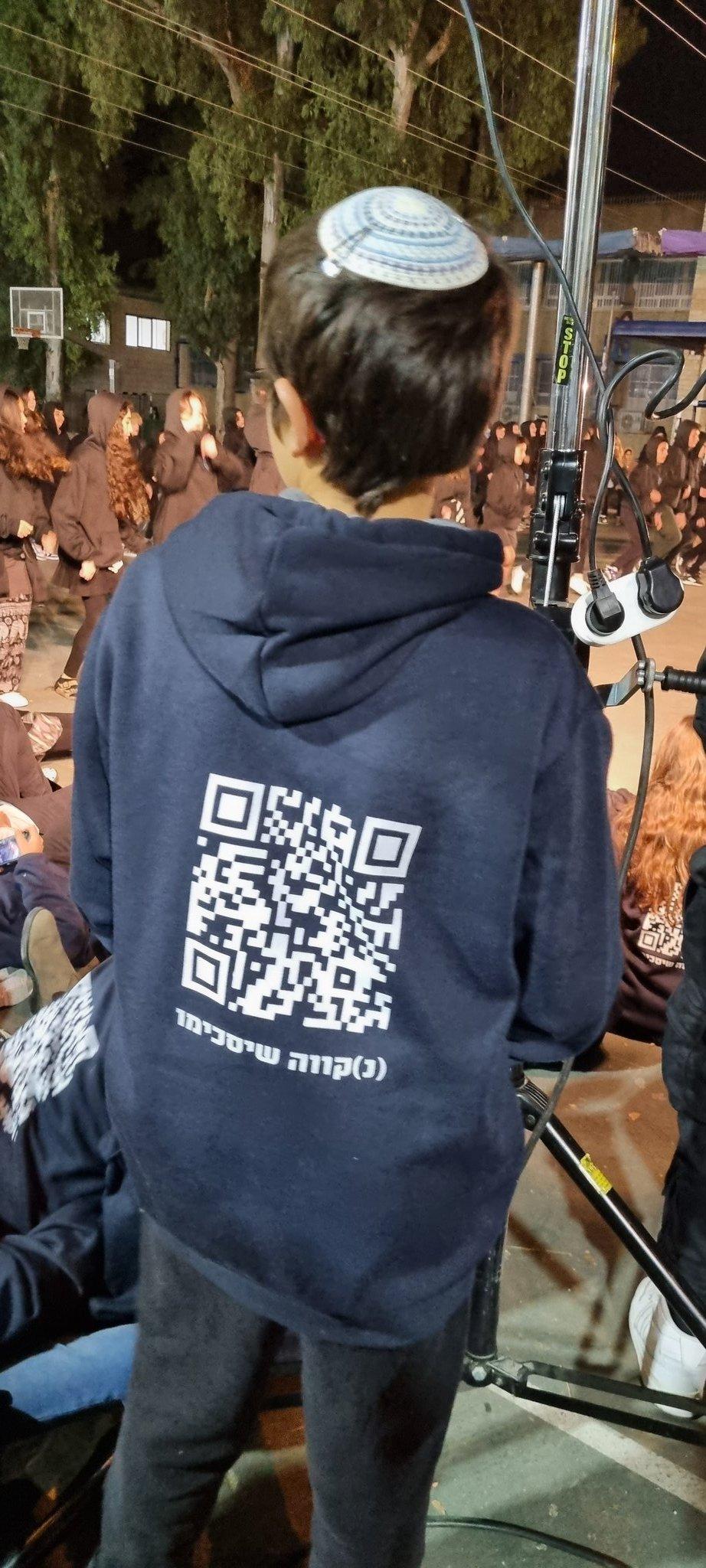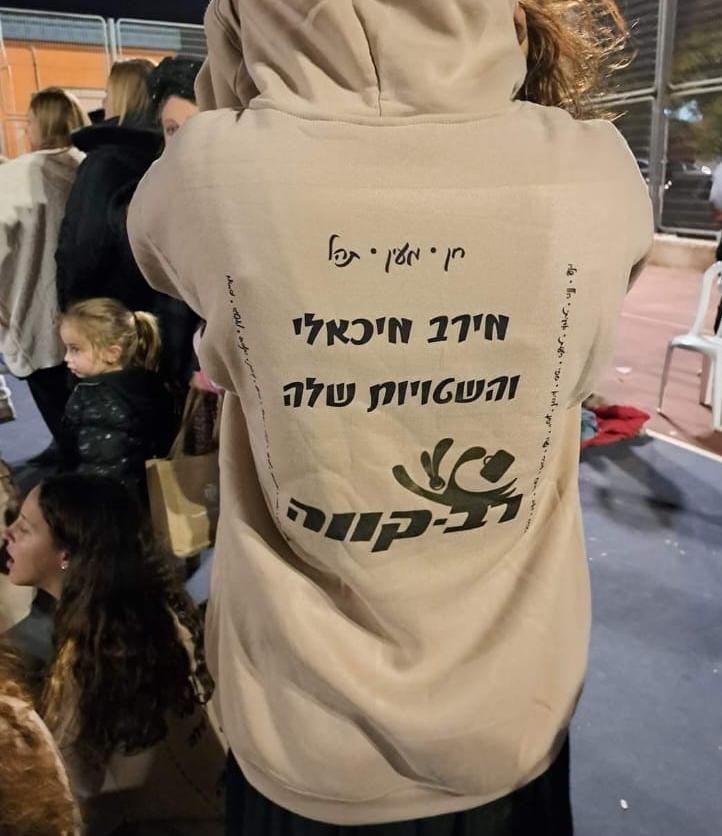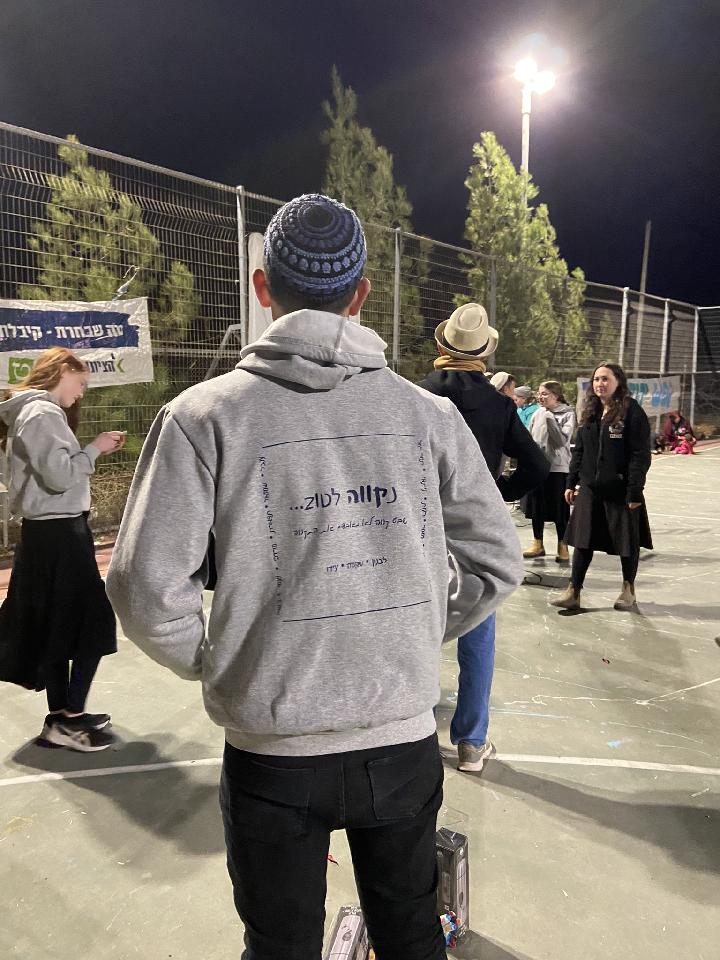What kind of country is this?
Thoughts about Israel, symbols, thanking G-d and not missing our on holiness - to start your week.
1.What kind of country is this?*
We have a tendency to generalize. Several days ago, Yuri Volkov was stabbed to death on a street in Holon. This was a truly horrible incident. But how quickly were many of us ready to jump to the conclusion that "this is a country where anyone can get stabbed in the street."
But then this week an announcement was published by Nadir Hovav on Facebook that read as follows: "In search of a small car for my wife, up to 7,500 shekels, in excellent condition. I will be glad if you can compromise on the price since I have a disability and every shekel is crucial to me."
Within a short time, this post reached 260,000 Internet users. There were numerous shares and reactions as if everyone online wished to help Nadir. It was a wave of digital lovingkindness: "I will gladly buy you a car," "If you don't find a car, contact me and I will gladly help," "We are a car dealership and want to give you a car," and on and on.
Sammy Steirov was the one privileged to be designated to perform this mitzvah: "Dear friend," he wrote, "choose a car with an affordable price and I will buy it for you." Immediately afterwards, Daniel Shmueli wrote: "I have a large selection of cars. You can come and choose whichever car you want and pay whatever you can afford." On Wednesday of this week, Nadir took a train from Ashdod to Haifa. Sammy took a day off from work and waited for him at the station. From there he took Nadir to Akko, to Daniel. Ultimately Nadir insisted on paying for the car himself.
So if we are "a country where people are stabbed in the streets," it's also possible to generalize in the other direction and say that we are a country in which tens of thousands of people are ready to help a disabled person -- whom they don't even know -- buy a car for his wife.
2. Tent, well, ladder*
Three symbols are associated with our nations’ forefathers Avraham, Yitzchak and Ya’akov. Which symbol is most identified with Avraham Avinu? A tent. It's a tent that's open on all four sides to anyone who is hungry, thirsty, or tired. It's a symbol of hospitality, of a perpetually open house where passersby are taught about faith, tzedakah, and lovingkindness.
And which symbol is most identified with Yitzchak? If Avraham's symbol is horizontal, as his tent is stretched wide to host the many wayfarers who stop there, Yitzchak's symbol is vertical and concerns depth, as represented by a well. Yitzchak dug up the same wells that his father had dug before him and taught us that we must persevere and never despair if we are to find the sweet water that resides in the depths. The message is clear: We can find meaning, even if the well leading to deeper understanding is blocked with sand, dust, and dirt, as long as we keep digging and never give up.
And what about Ya'akov Avinu whom we accompany on his journey to Charan in this week's Torah portion? What's his symbol? After the tent of Avraham which extends to the outside world and the well of Yitzchak that extends to the inner depths, Ya'akov's symbol is a ladder, as shown in his famous dream: *"And he dreamed and behold, a ladder was set up on the ground and its top reached to heaven."*
Ya'akov teaches us that this world and the next world do not need to be separate from each other. Instead, there is an everlasting connection between the physical and the spiritual, between what is revealed and what is hidden.
Rebbe Nachman of Breslov wrote: *"'A ladder set up on the ground and its top reaching to heaven' - this is what human striving is all about."* Our obligation is to connect earth with heaven, to fill our daily routine with holiness. Ya'akov Avinu challenges us with this mission, and I wish everyone success in its completion.
3. Leah's innovation: Giving thanks to God*
Tonight while in the midst of a family sheva berachot simcha, I heard the following from the bride's grandfather, *Simcha Gredinger*.
"In this week's Torah portion, we receive our name: Yehudim. The parasha relates how Leah gives the name Yehudah to her fourth son. And why Yehudah? Because she is thankful. (In Hebrew, Yehudah is a form of the word 'todah' or thanks.) As Leah says after Yehudah is born: *”This time I will thank the Lord.”*
It's written in the Talmud that since the creation of the universe there was never anyone who thanked God until Leah came along.
Our sages explain that Leah teaches us not only to give thanks for one-time miracles such as the splitting of the Red Sea, but also to be grateful for the routine pleasures of life that we experience every day.
And then the advice that this grandfather gave to the young couple, *Aharon and Ruti Meir*, is advice that could benefit us all -- to always be full of gratitude since, after all, being a Yehudi, a Jew, literally means to be thankful. To be grateful for everything, to praise God, to acknowledge the many blessings we enjoy, as well as the goodness and kindness of others, and to take nothing for granted.
4. Don't miss out on holiness
Rabbi Netanel Elyashiv comments on the beginning of this week's parasha where Ya'akov flees from Esav and sleeps at the side of the road in an arbitrary place. Only after he dreams about a ladder with angels ascending and descending upon it and hears glorious promises from God about his future does he realize he has slept in a holy place. As the Torah tells us: *"And Ya'akov awakened from his sleep and he said, 'Indeed, the Lord is in this place and I did not know it.'"*
We cannot predict where we will meet the Master of the Universe. We do not encounter holiness only when we prepare for it. In fact, sometimes at work, in the living room, or in the course of casual contact with a friend, we are enchanted by the unexpected depth that is revealed.
We belong to a culture where reality instantly changes with the push of a button, as we impatiently switch from one news flash or media blast to another. We are reluctant to let ourselves devote more than a fleeting moment to anything. With this helter skelter approach to life, we are likely to overlook opportunities for holiness. Just as we are quick to turn our attention from one thing to the next, we may carry this impatient mindset into other areas. For example, if something goes wrong between a couple, they may impetuously decide to separate, forgetting that there is much value and many opportunities to show love in their relationship if only they took the time to look for them.
"Indeed, the Lord is in this place and I did not know it." It would be wise to try and adopt a calm approach to living that fosters tranquility, a willingness to listen, and a slower pace so we do not act impulsively and miss out on holiness.
Thoughts about Israel, symbols, thanking G-d and not missing our on holiness - to start your week.

www.israelnationalnews.com
All government responses to High Court on settlements to require Smotrich's approval.

www.israelnationalnews.com
Over the past decade 6,440 physicians, 2,552 nurses, and 22,400 engineers moved to Israel and 22,000 immigrants enlisted in the IDF.

www.israelnationalnews.com





























 www.jewoftheweek.net
www.jewoftheweek.net
